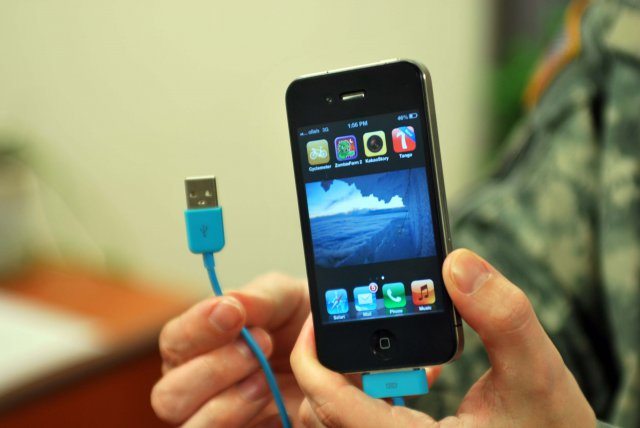Smart phone owners with access to government computers in South Korea have rapidly become the number one group of cyber security violators in the country.
Over a recent seven-day period, the Korea Theater Network Operations Center detected 129 cyber violations caused by smart phones alone. Most of the perpetrators did not realize they had done anything wrong.
“The main problem is that people are using their government computers to charge their phones with USB cables,” said Lt. Col Mary M. Rezendes, 1st Signal Brigade operations officer-in-charge.
Violators don’t realize that computers recognize their phones as USB devices and that their software puts the network at risk.
The Army’s information assurance policies, found in Army Regulation 25-2, prohibit the use of USB devices on its networks. Before being granted access to Army networks, users are required to take cyber security training. They also sign a user agreement that states that they will not use USB devices on government computers.
“Cyber security is at the top of the list of our priorities and we must hold those accountable for violating the Army’s policies,” Rezendes said.
Service members who violate the policy are subject to punishment under military law. Civilians may be reprimanded.
“People who violate the policy will lose access to the network and run the risk of losing the data on their smart phones or other USB devices,” Rezendes said.
A good cyber security program is a team effort.
“Though the 1st Signal Brigade implements DOD network policies, unit commanders have the authority to enforce them,” said Paul H. Fredenburgh, the 1st Signal Brigade commander. “But most importantly, it takes individual responsibility for us to collectively protect our networks.”











